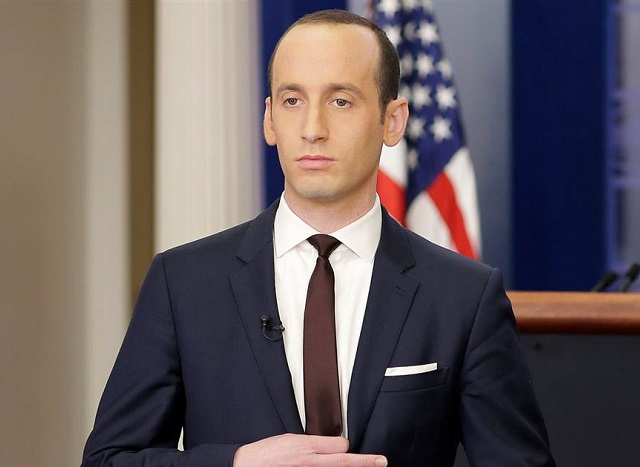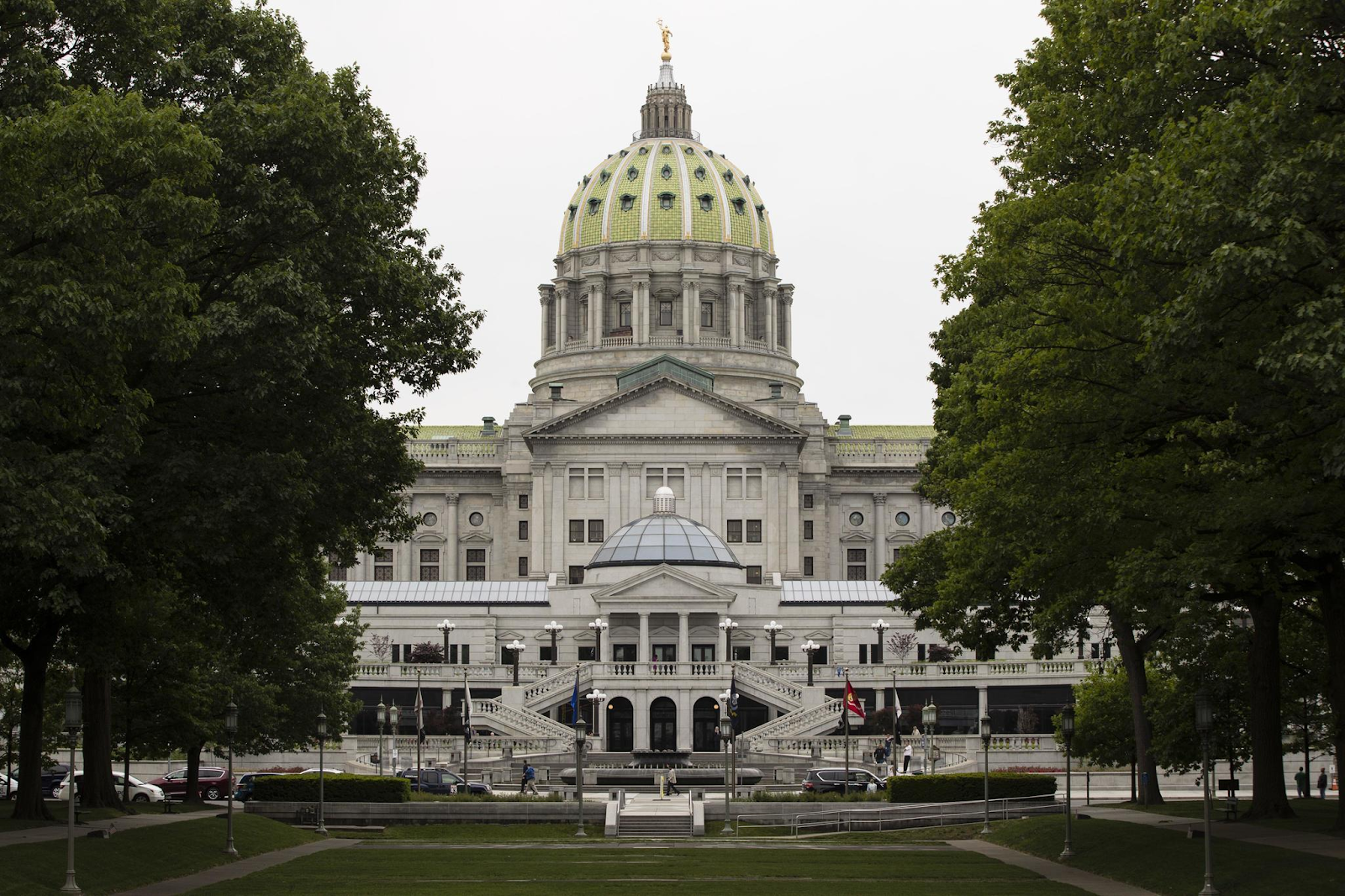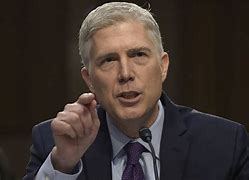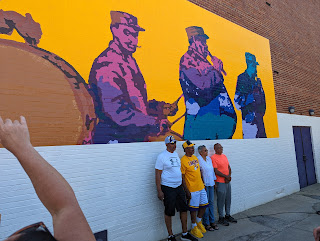If it seems like there are fundamentally different theories of government operating in this country, that's because there are.
Start with people who believe that the US is a Christian nation, founded on Christian principles. I'm not going to argue that particular point at the moment, other than to note that the Founding Fathers disagreed about virtually everything. And I don't just mean the obvious slavery stuff. Patrick "Give me liberty or give me death" Henry was opposed to the Constitution. Thomas "These are the times that try men's souls" Paine thought George Washington was a bungling tool unfit for any important office.
The notion that there was ever anything at all like a meeting that ended with the Founding Fathers looking around the room and saying, "Okay, so we're all agreed that we want to codify basic Biblical principles into the laws and functions of our government, right?" is silly. They agreed about nothing.But the "founded as a Christian nation" idea is a tell, coming frequently hand in hand with a very different idea about the foundations of the country.
Jefferson wrote in the Declaration of Independence that "Governments are instituted among Men, deriving their just powers from the consent of the governed." That assertion that government's get their power from the consent of the governed is both ideological and practical. It's not just that instituting a government that way is the proper thing to do, but that to try to derive government power from other sources (like, say, the divine right of kings) leads sooner or later to uproar, revolt, destruction, decay.
But for Christian Nationalists, the principle is that government derives its powers and legitimacy by alignment with God and God's dictates.
To some people of faith, particularly those with an Old Testament bent, this makes sense. A nation prospers because it aligns itself with God; to break with God is to bring ruin on the country.
But it also means that these people are starting with a different conception of what the country is about.
For one thing, the idea of a christian nation leads immediately to the idea of christian citizens. If the government is only legitimate to the degree it follows God's will, then citizens are only true citizens to the extent that they follow God's will.
All of this pushes the christian nation crowd to oppose democracy and democratic ideals. For them, democracy opens the door to letting citizens who are not legitimate citizens have a say. This is often what some of these believers are pointing at when they say that this country is a republic and not a democracy--a republic is built much more around the idea of government being steered by only those legitimate citizens, who are protected from the influence of the illegitimate others.
None of this is to say that all christian nationalists want to lock up the illegitimate citizens, put them in camps, keep them in chains, etc. Many believe deeply in freedom, but by freedom they mean the opportunity for those people who are not properly aligned with God to get right with divine direction and come over the right side, at which time they can be rewarded with the rights and privileges of true citizens. They may even praise diversity, because they believe it's an awesome thing that folks from all these different backgrounds and origins can come together under the proper banner of God.
But until they come over to the banner, they should not be allowed to drag the country off course.
At first glance, some christian nationalist ideas may seem hypocritical, but they aren't, because the underlying principle is that people who are right with God have certain rights and privileges, and people who are Not Right need to be restrained and kept away from the levers of power, because if they get their hands on the levers of power, those Not Right people will steer the nation further away from alignment with God's Laws, thereby endangering the nation's future.
And christian nationalists are constantly fighting the battle to keep the Not Right people from power. Welfare to undeserving, racial protests, immigration, voting rights--none of these are about addressing real problems, but are part of a web of excuses and sneaky strategies to give Not Right people more power in our country. You can't really chip away at their belief that 2020 elections (and others) are rigged, because the issue is not so much specific instances of fraud as the gnawing belief that there are all these Not True American people who are getting to vote who shouldn't get to vote.
Through this lens, we see a different purpose of education--to bring up true citizens who understand the true things that bring them in alignment with God's true word. There is no reason to confuse students with ideas that we already know are wrong. Early in my career, my friend the gifted teacher taught a unit on world religions, looking at the ideas and history of each one. Said one of his Christian students, "I'm not doing this. There's no reason to study those other religions, because they are all wrong."
This debate about education has been going on for decades. It does not matter which label is being currently used--evolution, tolerance, LGBTQ, BLM in school, the 1619 project, sex ed, SEL--these are just the current label for a large complex of attempts to teach things in school that seduce students away from God's true word and alignment with it. That's why we find counters such as the Florida civics education program teaching that the founders didn't want a wall between church and state, among other things.
School becomes an arena for debating the areas where christian nationalists and other Americans thrash out different values. Sometimes the language hides the disagreement. Everyone wants students to become good citizens who use critical thinking. But for some, "good citizen" means "aligned with God's truth" and "critical thinking" means "able to see through evil deception of those who try to lure you away from God's true word."
Not all Christians, not all nationalists, not all conservatives. But more than enough to wreak havoc (particularly if they get themselves a judge's robe).
But it's important, as we hash this out some more in the years ahead, to remember a couple of things.
1) This conflict is baked into our national DNA. So many colonists came here to get away from ugly messes where the church and state had become intertwined, and yet many, like the Puritans, did not think the problem was that the church was in charge of the state, but rather that the wrong church was in charge of the state. They escaped oppression so that they could be the oppressors.
2) We are dealing with people who don't share the value of democratic processes and democratic systems. In other words, hollering, "But that's not democracy works" at them will be fruitless.
What religious nationalists always fail to notice is that it always ends badly. It is not unreasonable to declare that God is not defined by a majority vote, however, humans have a long and bloody history of disagreeing about the nature and requirements of God. Turns out everybody has their own ideas about what, exactly, God's will might be.
They may dream of a country where only people who Believe Correctly are in charge, but such a country requires you to force people who disagree to shut up or force people who disagree to at least pretend to agree or force people who aren't part of the ruling church to accept what religion-backed-government chooses to take away from them, and those tricks not only don't work but also lead to huge civil messes. I believe the Founding Fathers were acutely aware of that history (after all--Great Britain had been through at least two ugly religion-related government upheavals in the 17th century) and that knowledge gave them ample reason to conclude that A) keeping the church away from government was a good idea and B) a government's power comes from the consent of the governed because when people stop consenting, governments find themselves with steadily decreasing power.
We do not agree on what this country is meant to be. We never have, and a whole shelf full of historians have made hay parsing the various subdivisions. What our founders cobbled together was a system that made it hard for any one subdivision to take control from all the others. Doesn't mean they won't try. Doesn't mean they won't come frighteningly close.
But folks in the education space need to understand that the most severe of the christian nationalists have no interest in compromise. They have spoken for years about their need to take back the schools, and that is what they intend to do, with all the discrimination, segregation, privatization, taxpayer funding, and absence of government oversight that it entails. They have lost, as historian Adam Laats often points out, the "wars" over what the culture will be. That doesn't mean they can't still fight a battle over who will run the country where the culture exists and the schools where the culture is imparted.
I know by the rules of this sort of essay I should wrap up with an encouraging plan of action, but I'm not really sure. I suspect it would help if everyone could stop viewing their opposition as slavering monsters, but if you view yourself as a soldier of God, it's hard not to see those who oppose you as agents of Satan. But I remain convinced that personal contact and connection can defuse much of this. How we transfer that energy over to politicians and media companies that are opportunistically profiting from the conflict I do not know. Surely there is some shared text that can help us, but right now we are all reading from completely different books, and I'm not sure how we bridge that. Sorry.
*Hat tip to Adam Laats and Katherine Stewart who articulate many of these ideas at greater length and in better ways that I do here.







